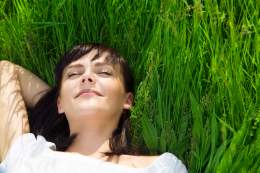05 October 2012
 Let your natural rhythms take over and enjoy the later twilight; that’s the advice from Dr Siobhan Banks of the University of South Australia’s Centre for Sleep Research, as daylight saving begins this weekend.
Let your natural rhythms take over and enjoy the later twilight; that’s the advice from Dr Siobhan Banks of the University of South Australia’s Centre for Sleep Research, as daylight saving begins this weekend.
Dr Banks, who has researched the effects of sleep loss on health and neurobehavioral performance, said the loss of an hour, as clocks spring forward in time, is akin to just the mildest form of jet leg.
“Going forward an hour is like staying up an extra hour as far as your body’s concerned. Most people find they can stay up easier and in circadian rhythm terms that means phase delaying.
“Put simply, an hour’s extra light exposure in the evening is quite enjoyable for most people. It’s also a signal that summer has begun.
“In other states such as Western Australia and Queensland where daylight savings is not observed it can be lighter earlier in the morning and people may not necessarily like that, as their bodies then are more cue-ed to wake up earlier.
“But really it depends on your chrono-type; whether you are a night-owl or a morning lark.”
Dr Banks said that despite losing an hour in summer, it is when clocks go back in autumn that most people feel worse.
“When we put our clocks back, even though we gain an extra hour, that can be quite a shock to the system. In terms of the body clock it means people have to get up an hour earlier and that is harder to get used to.”
Dr Banks’ main tip for this weekend is to keep an eye on the time.
“Just remember to change the clocks and anticipate how it will affect you in the next day. On Sunday morning you can either follow your natural rhythm and wake up a little later or set your alarm and get used to the new time. There shouldn’t be too much fatigue associated with that.
“Most people will find it fairly easy to adapt, but try to get to bed a bit earlier on Sunday night, if you have to go to work on Monday.”
Contact for interview:
Dr Siobhan Banks, Centre for Sleep Research, 830 21712 Mobile 0423 593 069
Media contact: Will Venn office 8302 0965 email Will.Venn@unisa.edu.au




